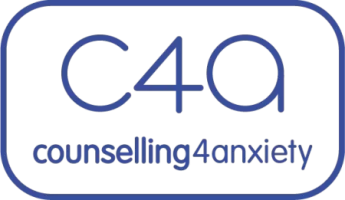Obsessive Compulsive Disorder (OCD)
Obsessive Compulsive Disorder (OCD) is a mental health condition that involves obsessional thoughts and compulsions – actions to remove fearful or frightening thoughts.
OCD can start in early childhood though it usually exhibits interference in someone’s life around puberty and early adulthood. The obsessional thoughts that are part of the condition can cause significant distress to the sufferer and can range from thoughts about harming others, through to thoughts of contamination and even sexually explicit images and thoughts that recur again and again.
Obsessional thoughts are unwanted thoughts, images or urges that enter an individuals mind leading to a sharp rise in anxiety, worry and fear since the thoughts are so concerning. These thoughts go against the values and beliefs of individuals which makes them so anxiety causing.
Compulsions are behaviours, (usually repetitive), that are carried out by an individual as a means of relieving the anxiety caused by the obsessional thoughts. The compulsions therefore act as a form of a brake on the anxiety, though the reality is that the longer the compulsions are carried out, the longer the obsessional thoughts and ruminations take place and the stronger the thought impulses become.
Examples of compulsive behaviours include (i) putting away sharp knives and away from the sightline of an OCD sufferer (ii) repeatedly checking doors, windows and locks (iii) repeatedly cleaning items in the home to ensure that they are ‘free’ from germs (iv) counting to specific numbers that ‘feel good’ or ‘feel right’ (v) repeatedly thinking that an individual has done something bad, like causing an accident, when they have not.
These are just some examples and there are a number of treatments that include taking medications such as Selective Serotonin Reuptake Inhibitors (SSRIs), talking therapies and exposure response prevention programmes that can assist people in managing this condition.
Frequently asked questions
Counselling at its core, is about building a therapeutic relationship between a client who wants counselling and a counsellor (sometimes called a therapist). This therapeutic relationship is based on openness, commitment, empathy and curious self-exploration by the client and which is facilitated by the counsellor. This allows for reflection work to take place.
Counselling is undertaken in a confidential space and environment where clients can express their innermost thoughts and emotions. It also provides a platform through which psychoeducational work can be conducted by the counsellor providing mental health information to clients that can facilitate reflection, better understanding and help to stimulate thoughts and emotional feelings that may provide meaning and context to the client.
Some people may choose to support their mental health through ‘talking therapies’ like counselling; others choose counselling and pharmacologically based interventions through medications like Selective Serotonin Reuptake Blockers (SSRIs). It is important to acknowledge that there is no ‘one size fits all’ approach to supporting the mental health of individuals. For many, this involves trying and testing what works for them and what they feel comfortable with. However, one thing that underpins counselling work is the opportunity for a client to connect with a counsellor and to be acknowledged and heard. This form of validation can be life changing and help in the healing process.
There is no set limit or set period of time for sessions of counselling work. Some institutions like the NHS may provide blocks of counselling sessions for short term work, (such as 6 sessions), whilst other organisations or institutions may provide longer term counselling opportunities from 12 to 24 sessions, and even longer term work that can be over a year.
If you are looking for counselling services it is important to ask the relevant organisation how many sessions they can provide and whether they can provide long term support. It is also important to express your needs when talking to organisations that you approach for counselling. This also allows both parties, (the client and the organisation), to be clear on opportunities, limitations, requirements and what is feasible in the therapeutic connection.
Remember, your mental health needs are important. This means expressing these needs when you make contact with counselling services.
Counselling4Anxiety provides short, medium and long term counselling services and these range from 6 sessions through to a commitment to the provision of counselling services over a year. We will work with potential clients to develop a counselling work plan based on their needs and what we consider may be useful.
Counselling4Anxiety acknowledges that some people try and access counselling services because they are in mental health crises and therefore want to be able to access services as fast as possible. We also acknowledge that some clients are willing to wait to access services and this is also sometimes led by their financial constraints.
Counselling4Anxiety therefore aims to provide all potential clients with counselling slots within 2 weeks of making contact with us. On occasions when this is not possible and where someone needs urgent assistance, Counselling4Anxiety will signpost them to other counselling providers, (Note: Counselling4Anxiety does not have specific agreements or financial arrangements with any other counselling provider around the referral of potential clients. This is important to highlight since we are independent and any such financial arrangements would be unethical and unfair to potential clients. Ultimately we believe in choice and individuals must research and review a range of counselling providers in order to come to an informed decision).
The short answer to this is yes, though there are specific conditions in which confidentiality may be breached by Counselling4Anxiety. These specific conditions could include if you were a threat to yourself and where you had expressed a desire to undertake suicide. Under such conditions, we would be duty bound to contact your General Practitioner (GP), any specialist psychiatric services you were accessing and/or your next of kin.
Additionally, if you express the desire to harm others within therapy, we are duty bound to inform your GP and psychiatrist and depending on the threat, other relevant bodies.
We are also duty bound ‘not to cause harm’ in our work and to protect the confidential rights of clients. These duties are not set in stone and can be breached if we consider – through your thoughts and actions, that you are a risk to yourself or members of the public.
Counselling is mainly a one to one working relationship between a client and a therapist. This changes in ‘couples therapy’ though as the name suggests, this involves couples who know each other intimately.
Counselling is therefore based on both parties feeling comfortable enough to work together. Introducing a third party into the work would affect the dynamics of this relationship, compromise confidentiality and skew the ability for clients to be open about their thoughts and feelings. Therefore this will not be possible and would be beyond the bounds of ‘couples therapy’ work.
Yes, we provide counselling services through Zoom and via the telephone, as well as in-person. We believe that people should be able to access counselling services through platforms that feel comfortable to them and which can fit around their busy schedules and lives.
A counselling session consists of 50 minutes of one to one work and with 10 minutes used by the therapist to write up relevant notes. Each session costs £50 and Counselling4Anxiety have kept costs as low as possible, (compared to other providers), since we believe that counselling should be accessible to as many people as possible.
Get in Touch
Feel free to contact me via the form below or on 0208 906 6877 if you have any questions about how therapy works, or to arrange an initial assessment appointment.
All enquires are usually answered within 24 hours, and all contact is strictly confidential and uses secure phone and email services.
© Counselling4Anxiety
Powered by WebHealer



